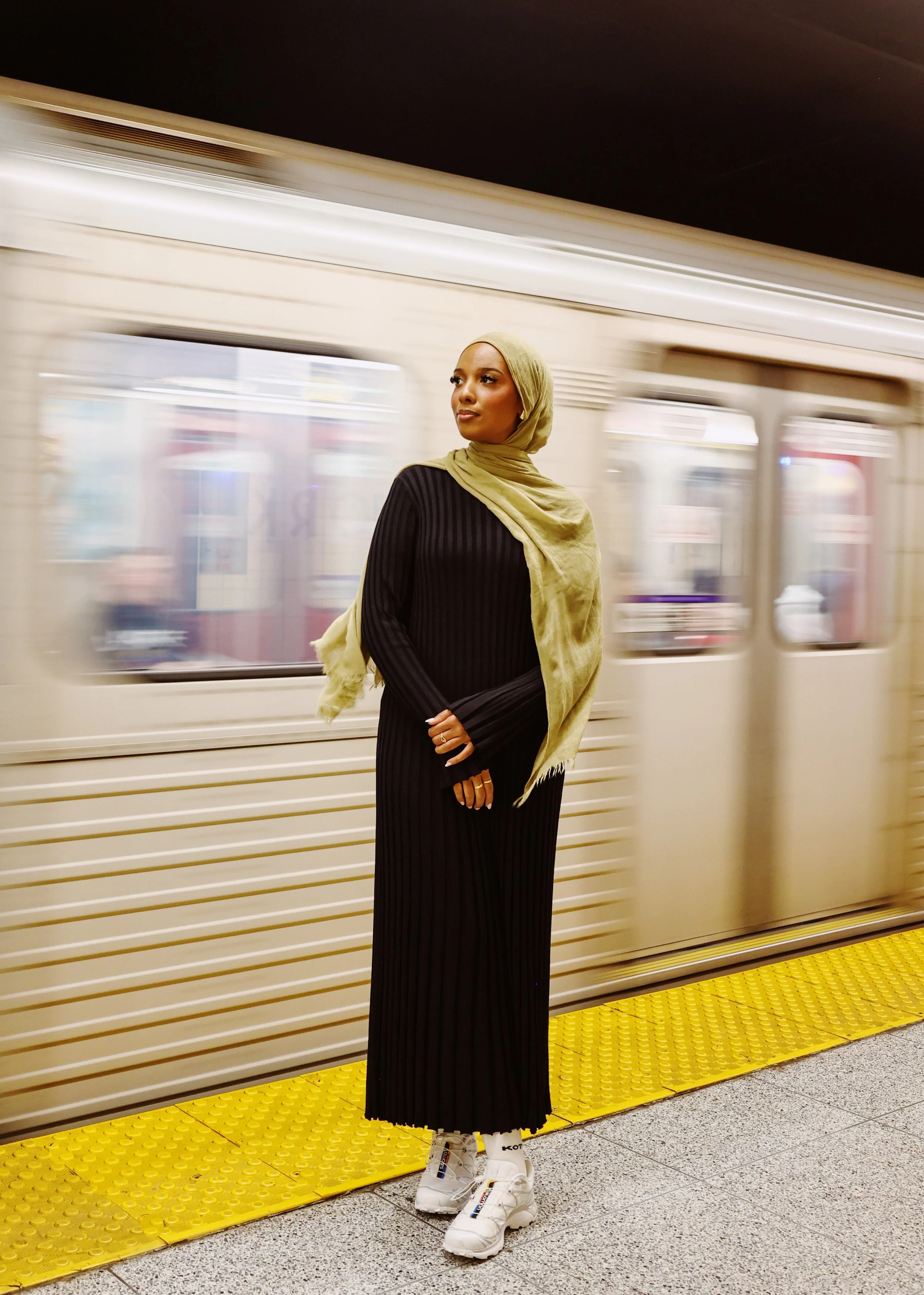Furqan Mohamed is a writer and educator from Toronto. She is interested in all things popular culture, diaspora, kinship, and anti-oppression. Her work has been featured in award-winning publications such as The Local, where she was an inaugural Journalism Fellow, as well as Toronto Life, Mimp Magazine, Maisonneuve, and Room Magazine. Her artistic work includes creating the reading series "Who's Afraid?" an episode of "Dreams in Vantablack," streaming now on CBC Gem, and an artist residency with the inPrint Collective in collaboration with the Mackenzie House museum. She previously served as a workshop facilitator with the non-profit, Story Planet, and her digital chapbook, "a small homecoming," was published by Party Trick Press in 2021. Furqan earned an Honours Bachelor of Arts (HBA) from the University of Toronto and is presently a Master of Arts in Child Study & Education candidate at the Ontario Institute for Studies in Education.
Carrier of careful movement,
sand eventually became gravel
gravel became snow
Would she tell me how you got here?
Would You Call Home by Her First Name or Last?
I am preoccupied with movement. I want to know so much. I think when migration and immigration are a part of your life, you can't help but focus on moving. Arriving and leaving.
The way hydrologists work to understand a river, where is it going… where is it coming from. What was here before. Underneath. What is it today. What it will be tomorrow.
The whistling sound of the bus making its way to its stop, sounding like the kettle on the stove in my auntie's place. How you so often don't need a map or even to look at the number to tell you where you are. The people do.
As far back as the later half of the 1970s, the part of the city between Allen Road and Keele Street, Eglinton West Avenue has been known as "Little Jamaica," joining other "little" slices of culture— Little Portugal, India.
A small suburb in Etobicoke was named "Little Mogadishu" after the arrival of migrants and refugees in the wake of the 1991 civil war. The neighborhood, Cedar-Riverside, in Minneapolis, bordered by the Mississippi River from north to east, is also known as "Little Mogadishu." Some tend to disagree on which came first. My father joked once that he could as easily have ended up across the border, trading one Little Mogadishu for another. He may have found a home there, too.
My mother and father arrived in Canada in the 90s; my mother, with her Yemeni ancestry, settled in Ottawa, and my father in Toronto. They would meet and marry soon after, helped by the fact that their families knew each other back home in Somalia. I often wonder if that is how communities like the ones aforementioned were formed. Someone knew someone who came over, who called them, and then someone else. You are safe here. Leave your kids with me. Can you pick up mine after school? Should I bring the main or the sweets? We're putting some money together for her daughter's wedding.
::
If a street could speak
would she whisper or scream?
Carrier of careful movement,
sand eventually became gravel
gravel became snow
Would she tell me how you got here?
The end of the century asked it's own questions
about the choices we make when
many must arrive with no fixed address
Would you call home by her first name or last?
Wedding drums and 40 day celebrations
hands exchanging small bodies swept into sedans
conflicts forgotten with the extension of a favor
Footsteps trace new paths
Buildings fill up and eventually, walls come down
Would she forgive you?
Would she miss you?
Would you tell others about her?
Would she ask you to return?
::
In a house I lived in not long ago, the bus stop was at the very end of the street— a long walk for most of us kids getting to or coming from school. When the uncles or aunties would pull into the street and see you, lugging your backpack, they'd pull right on up. What would take a good handful of minutes in the rain or snow or blaring heat, became a relaxed, quick ride in a familiar car. And if you tried to be polite, or if it was anytime after maghrib, and you refused, heaven help you. I think an auntie could get more done than anyone in city hall, not because she holds some intense, secret political prowess (although that could very well be true). It's because she loves your mother and in turn, you.
In this piece, I wanted to focus on movement because by tradition, even without the context of conflict, Somali people are nomads, experts on belonging and re-belonging. More universally, I have always been in awe of the ways that under the most tenuous of circumstances, people come together to form hubs of care, making use of what is often the most forgotten and overlooked parts of our urban communities. Though our histories are recorded through official channels, with the voices of those in power rather than the marginalized, I am sure that if our streets could tell us what they have witnessed, they would share the more honest, complicated, and far more interesting perspective: we have done the best with what we have, for ourselves, and each other.
